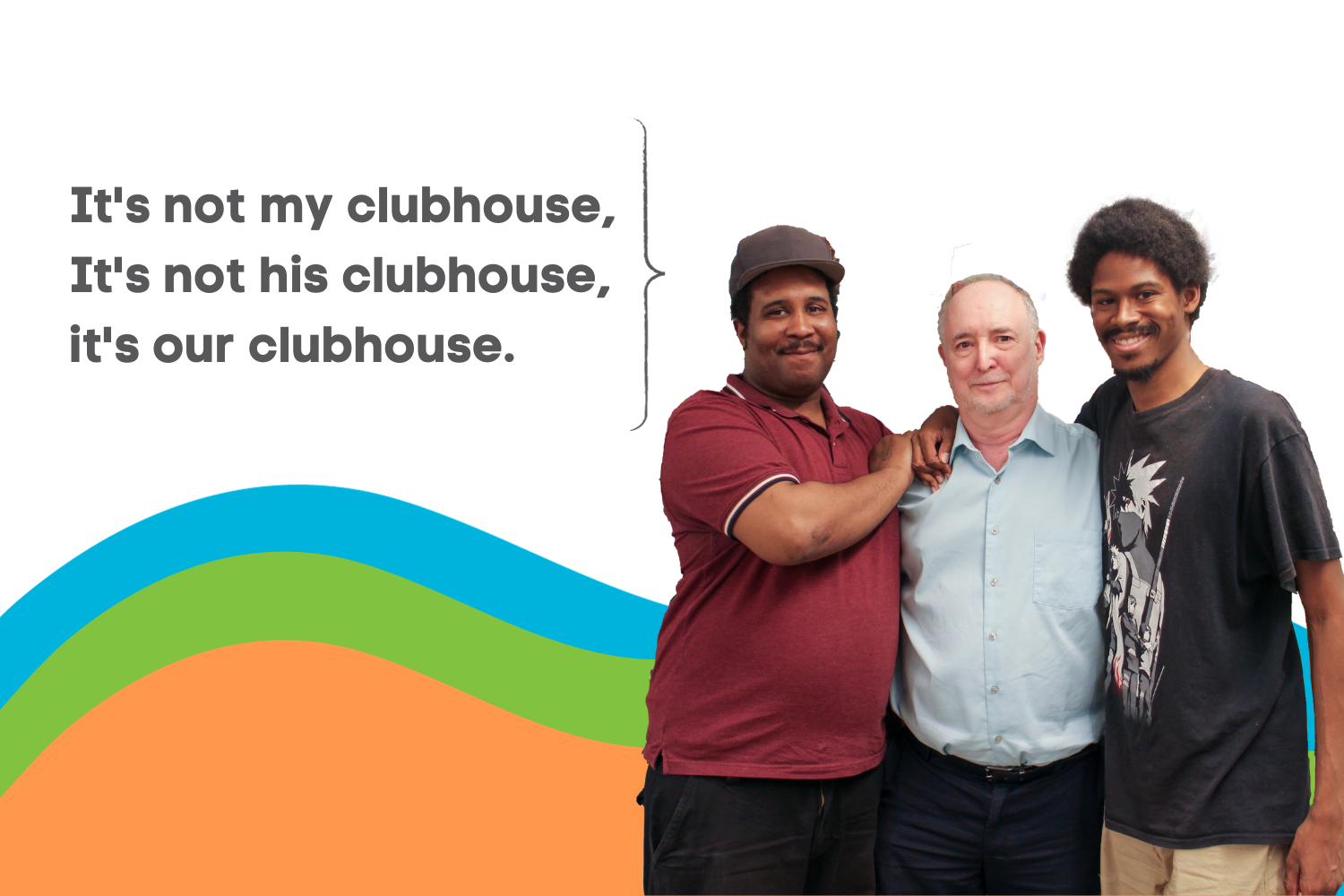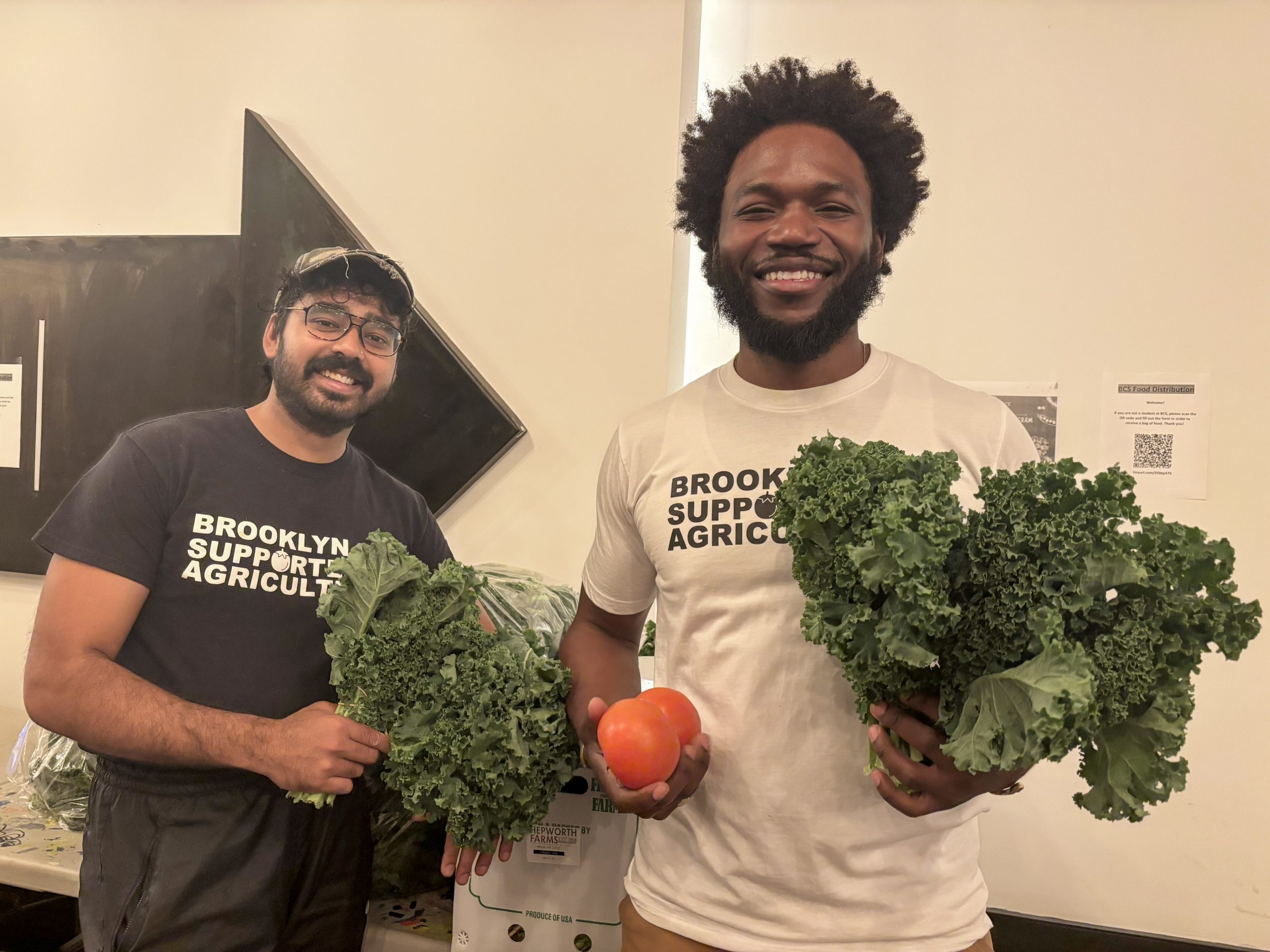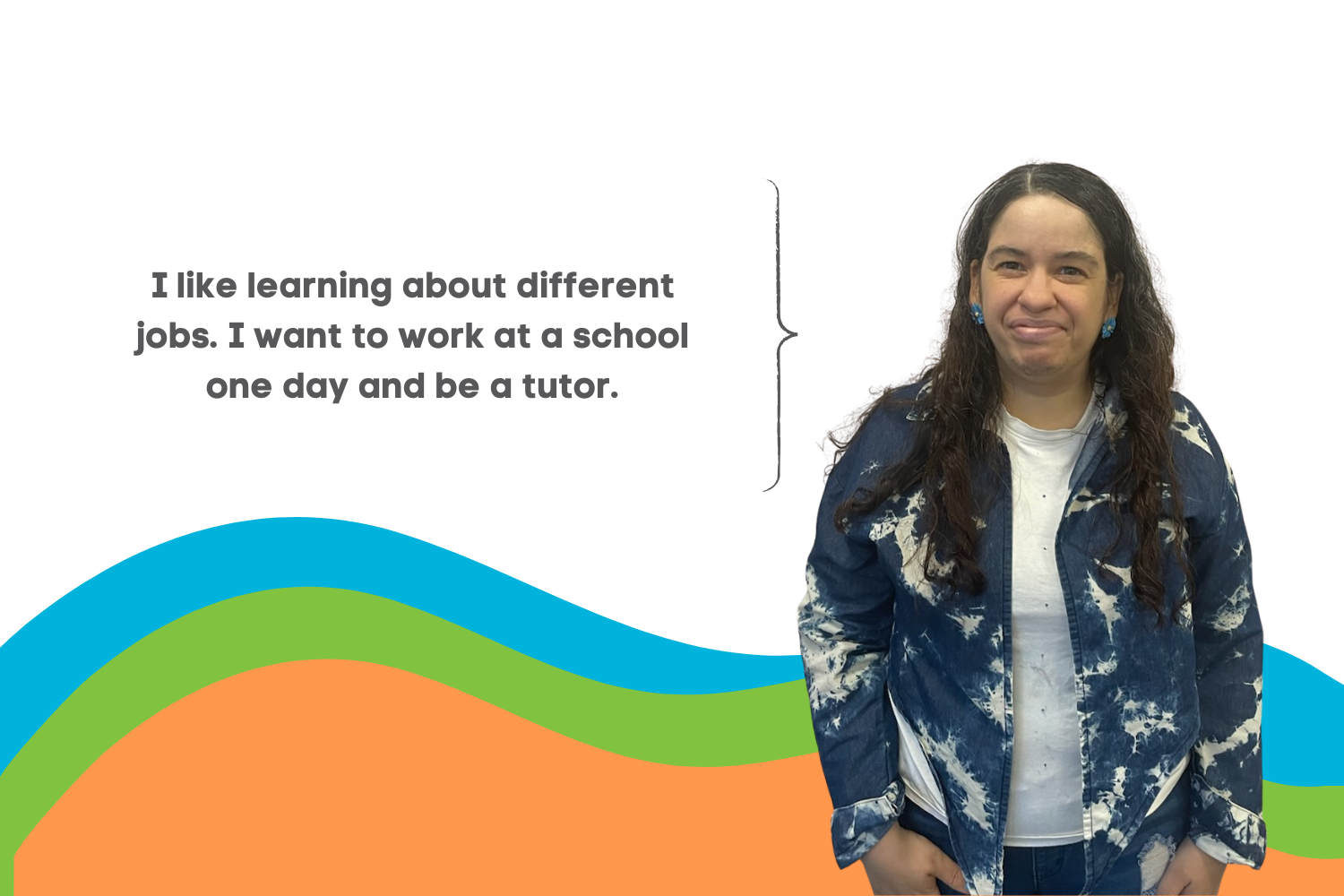Member and Staff Spotlight: The Greater Heights Clubhouse

Interview with Bill Lampert (Staff), Lavelle Lockett (Clubhouse member), and Phillip Johnson (Clubhouse member): 7/18/23
What is the Clubhouse model? How would you describe the Clubhouse?
Bill: Everything that we do is done in a collaborative approach. Members come here and they volunteer their time to work here to invest in their own recovery. And so it’s amazing.
Lavelle: I’d describe it as a place where you can work to achieve your goals. And you can interact with many, many people and work all the time. So I like the Clubhouse because it is very open.
Phillip: I like the help that caseworkers give the members. I like to make friends here. I like the atmosphere, environment, and community. It helps with sobriety, with keeping clean, the Clubhouse can help you volunteer to work. And searching for jobs on your own or asking a caseworker case, caseworkers run the Clubhouse, really —
B: Members run the Clubhouse! We work for you! I work for him, he’s a star. He’s a star. And he comes from Staten Island, takes him how long?
P: Two hours.
B: Each way, every day. And when I work late, he’s the last one here with me. Because he makes sure that the place is shut down properly. And he’s very dedicated to everything that goes on here. These two guys here are leaders. We don’t have a Clubhouse without member leaders. As a staff, our job is really to recognize the strengths and talents of the members and to try to help bring them out. I can’t think of two guys who do more to help make the community prosper.
I’d love to know how all of you got first involved with the Clubhouse and how long you’ve been here?
B: My journey is a little atypical, because I’ve worked in other fields. I was working in advertising and I wasn’t so happy. I had some exposure to mental health because my wife’s brother had a diagnosis of schizophrenia. And when I first met my wife, I noticed that I bonded with him, he was a musician, we both played music, but I could see that there were things that were missing in his life. I started asking questions, we had another family member who’s a renowned research psychologist, and I thought, well, “We got this expert, and then we have this person who has this ailment and nobody’s tapping this resource.” I started to do that and learn some things and along the way people said, “You’re good at this, you should work in mental health.” So I got a temp job in 1997. I actually interviewed on my 40th birthday for this temp job to work in a place called Fountain House, which is the original clubhouse from 1948, it’s the largest one in the world. I started as a temp in the accounting department and then I stayed there for 15 years. If you’re working in the administrative side of the clubhouse, it’s not that different; you’re still doing side by side work with members. Then in 2012, I came to BCS’ East New York Clubhouse. I’m really happy that I did that. Working for BCS, it’s been a joy. I’ve gotten to work under two great program directors. Katrina Grant is the current director, and I think she is the best program director of all the clubhouses in New York City. She’s amazing, because she’s so positive. She’s so focused on helping everybody, she’s very nonjudgmental. She just meets people where they’re at, and she’s navigated us through the transition from the old building to the new building. If you throw her 1,000 lemons, what’s she gonna do?
L: Make lemonade!
B: She’s gonna make lemonade. So that’s my story. But Philip and Lavelle have different stories.
L: I was homeless before and I didn’t even know about the Clubhouse and all these things. I got arrested and got switched to a mental health hospital which was Kingsborough. I was there for a little while, for a year or so. Then I was doing well, and I was progressing and stuff. And they saw I was very intelligent, as well. Everybody liked me there. When I got out, they set me up in a family care program where you live under the roof of a provider who takes care of everything in the house and gives you food and supplies. Then my provider set me up with the Clubhouse. The first clubhouse I’ve been in was the old clubhouse that was on Atlantic Avenue and then when we moved here because certain things happened-
B: The building was falling apart! And it was being sold, so we couldn’t stay there anymore. BCS found us this new space, they constructed it specifically for us and, you picked a kind of good day, because tomorrow actually will be two years to the day that will have been in this building. We came on July 19th of 2021. And we’ve been here ever since and it’s been a process to rebuild because a lot of people were used to the old place, we’ve lost a lot of people in the process. You also came through BCS, but from a different way.
P: My membership came from BCS PROS, I graduated in 2018, the BCS Greater Heights Clubhouse did a mural and PROS was connected with the Clubhouse to do the mural.
B: Yeah, Mural Arts Project.
P:When I graduated, I kept coming every Monday to the Clubhouse on Atlantic. And then when word got out that I graduated, my friend Thomas knew Mr. Bill.
B: Thomas Torres is a member here, he used his membership to do some transitional employment jobs and ultimately wound up becoming a case manager, a peer counselor at BCS PROS, and that’s where he and Phillip met. And he sort of encouraged him.
P: I started in 2019 and I’ve built relationships with staff, I built relationships with members, and then the pandemic came and things shut down. I was doing some side stuff to get money, but that didn’t turn out the way I wanted. Mr. Bill was the first person to tell me that the Clubhouse had reopened and I should come back. I said, “I’m coming back to the Clubhouse, I’m coming back to BCS!” Now, when new members come, me and Lavelle give them tours of the Clubhouse. This Clubhouse is not like every other clubhouse.
B: One of the basic rules in the Clubhouse is, if you’re a staff person, try never to do anything by yourself. Try to always get a member to help you do things whatever that is. So Kamal, who just walked away, conducted interviews for the Summer Youth [Employment Program]. And another member, Miguel, was sitting down and editing the newsletter. It’s a collaborative effort. We put out an amazing newsletter every month. We’ve always had a newsletter, but it was never a priority. So we decided during the pandemic, this was something we could do remotely. And so starting in April of 2020, we’ve had a newsletter come out every month. And a lot of people have written articles, Lavelle’s written articles, Phillip’s written articles, and what it does is it gives people who believe that they can’t do something tangible proof that they can. So when you say “I can’t write.” And then you see, oh, I’m published, it’s a real source of pride for people. I’ve said this so many times, you know, disability does not mean inability. I never go up to people and say, “Hi, I’m Bill, hypertension.” It doesn’t define me, it’s a condition I live with. I think the difference is that sometimes people look at these mental health conditions, and they think it defines people. But it really doesn’t. I mean, you know, we’ve talked about this a lot that Abraham Lincoln, Gandhi, Martin Luther King, all had mental health diagnosis, did it define them? No. What defined them was their greatness. We talk about this all the time, don’t let people put you in a box. Don’t let people say you can’t. Philip Johnson is one of the greatest workers ever. All you gotta do is watch him. Watch him in the kitchen, doing dishes. He does amazing.
P: Also, we build strength and confidence in the Clubhouse. And these qualities are how staff and members build this Clubhouse from the bottom up. This is how we as a team run the clubhouse to fit all of us.
B: The second you walk in the door, the first person you meet is the receptionist and it’s usually a member. These people are dedicated professional, hard working people, and they really care. And I consider it an incredible privilege to be here.
L: And I think what brings out the talents is the Clubhouse Model. You can do so much in this clubhouse that you can also put on your resume.
B: That’s true. That’s absolutely true and the interesting part about it is that it’s all volunteer. I’d like to put a gun to his head and say, “Lavelle! Do this!” But the truth is, that’s not the way it works. And so part of it is in the asking. I think people, if they like you and you ask them, they may want to help you. And what’s more, is that I wouldn’t ask anybody to do something that I wouldn’t do. If somebody soils the toilet, I’m not gonna say, “Phillip, clean that up!” if I wouldn’t do it myself. I’m gonna get in there and do whatever it is that I can do. Even if I asked somebody and it’s more than one person can handle. I’m going to be there to do side by side work, and we find that often that cleaning up the kitchen, if we have a big event, that’s not a one person job. And the people who make food know that they can’t produce 30 meals without the assistance of the members. It’s very integrally connected in needs. Everybody needs these things to be done. We need to work on it together to get it done. It’s not my clubhouse. It’s not his clubhouse, it’s our clubhouse. We’re all as invested, members are just as invested in the clubhouse, more so sometimes, than the staff.
P: Yeah, we on the team are all important. And nobody is left out of that. Nobody.
B: I think that’s exactly right. And I think that in some way, having a sense about that is a major contributor to anybody’s mental health. Without a sense of purpose, without a sense of belonging. I’ve had other jobs where I had no sense of purpose and no sense of belonging. And it didn’t do much for my mental health. I mean, I did some of those jobs because I needed a paycheck. I wanted to do a good job. But here it’s different. Here, there’s a real desire to go the extra yard.
What would you say to someone who’s considering joining the Clubhouse or any clubhouse, but is nervous about being vulnerable or joining a new space?
P: I’d tell somebody that’s nervous, come here to visit and ask questions about what our standards are, what our rules are, what the resources are for housing, jobs, school, find out the services.
B: I would add that, in life, we all have choices. Every choice has some small element of risk. But when you make assessments, risk versus reward, risk is minimal. Rewards are unbelievably high. And if you show up, you’re gonna succeed. Showing up is 99% of what makes this a successful experience. So if you’re invested in your own ability to move forward, this is a good place. Many clubhouses are bigger and have more resources. You’re too young to know this, probably everybody here in the rooms is too young to remember, there used to be a TV series called Cheers. The name of the song in Cheers is “Where Everybody Knows Your Name.” That’s what makes this clubhouse special. When you come here, everybody’s invested in you, they know who you are. If Phillip comes in, we want to see Phillip succeed. If Lavelle comes, we want to see Lavelle succeed. Because the truth is that whenever any of our members succeed, it inspires not just the members, it inspires all of us to do better. When he comes from Staten Island, I think, ‘what am I complaining about while I’m stuck in traffic coming from Queens five miles away?’
Anything else?
P: There’s nobody I’ve ever worked with that compares to how Mr. Bill has helped me. He doesn’t preach at me, he teaches me. I’ve never had a case worker who added the fire to my tank to push me like Mr. Bill pushes me each and every single second. And that’s a blessing for me, Mr. Bill’s a blessing.
B: Vice versa. Can I share?
P: Yeah.
B: Right before the pandemic, Phillip was pretty disconnected from services. He had actually recently gotten discharged from a hospital but he wasn’t connected to new services. He wasn’t in a great place. And the pandemic was not a good thing. We tried to connect with people remotely, but that just doesn’t work for everybody. And so he was pretty unwell. And he was on a crash course, for maybe not such a good thing. There was a lot of remote effort to get him services. I worked with a lady in Staten Island and some really, really, really incompetent hospital systems in Staten Island that should have taken one time took like eight times to get him the services he needed. But once he did, he just took off. And by the time we got back to the new building, he was in a really good place.
P: I was doing badly. And I got better.
B: He did, miraculously. Miraculously so.
L: Bill helped me on so many occasions. I think that’s what I like about Bill, he pushes you to be better. He wants you to understand, even though sometimes it can be a little bit over the top, I think I like that because it gives me an opportunity to say, “I’m going to stand up for this and do it.” He keeps telling me about the GED. I just don’t want to do it at the moment because I’ve been through so much with trying to get my GED. But Bill keeps pushing and keeps pushing, keeps pushing, even though I’m like “come on, Bill!” I still feel like he’s right because education is very important.
B: I’m going to tell you probably the day you had the biggest smile ever in the Clubhouse, you know what I’m talking about?
L: Yeah.
B: He has a friend, his best friend here, right? Would you say is Rudy? Rudy graduated, got his associates at LaGuardia, and Lavelle, Monica [another staff member], and I went to the Barclays Center to see Rudy graduate. This guy got dressed up in a suit and you could just see the smile and we are just waiting, me and Rudy and Monica, to go to Lavelle’s graduation. Then the smile’s going to be even bigger. Who’s smarter you are Rudy?
L: We both are.
B: Right. So if Rudy can do it, he can do it. He’s very smart.
Top Viewed Posts
Youth Art Programs
Program Spotlight: Day Habilitation
BCS Volunteers Spring into Action for Brooklyn
Recent News

Participant Spotlight: Ann Salmon, PROS
July 16, 2025
Read More
 SUBSCRIBE
SUBSCRIBE 











